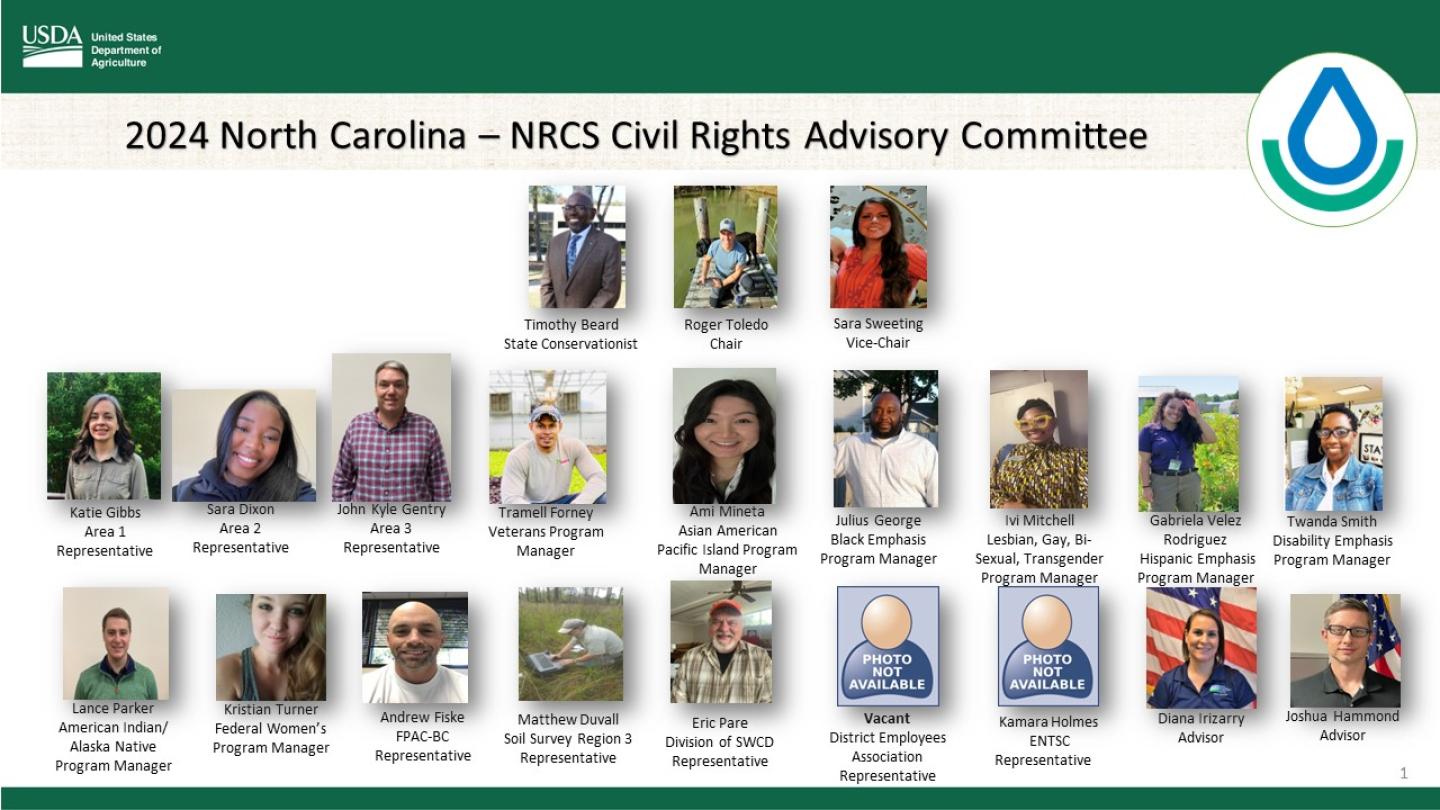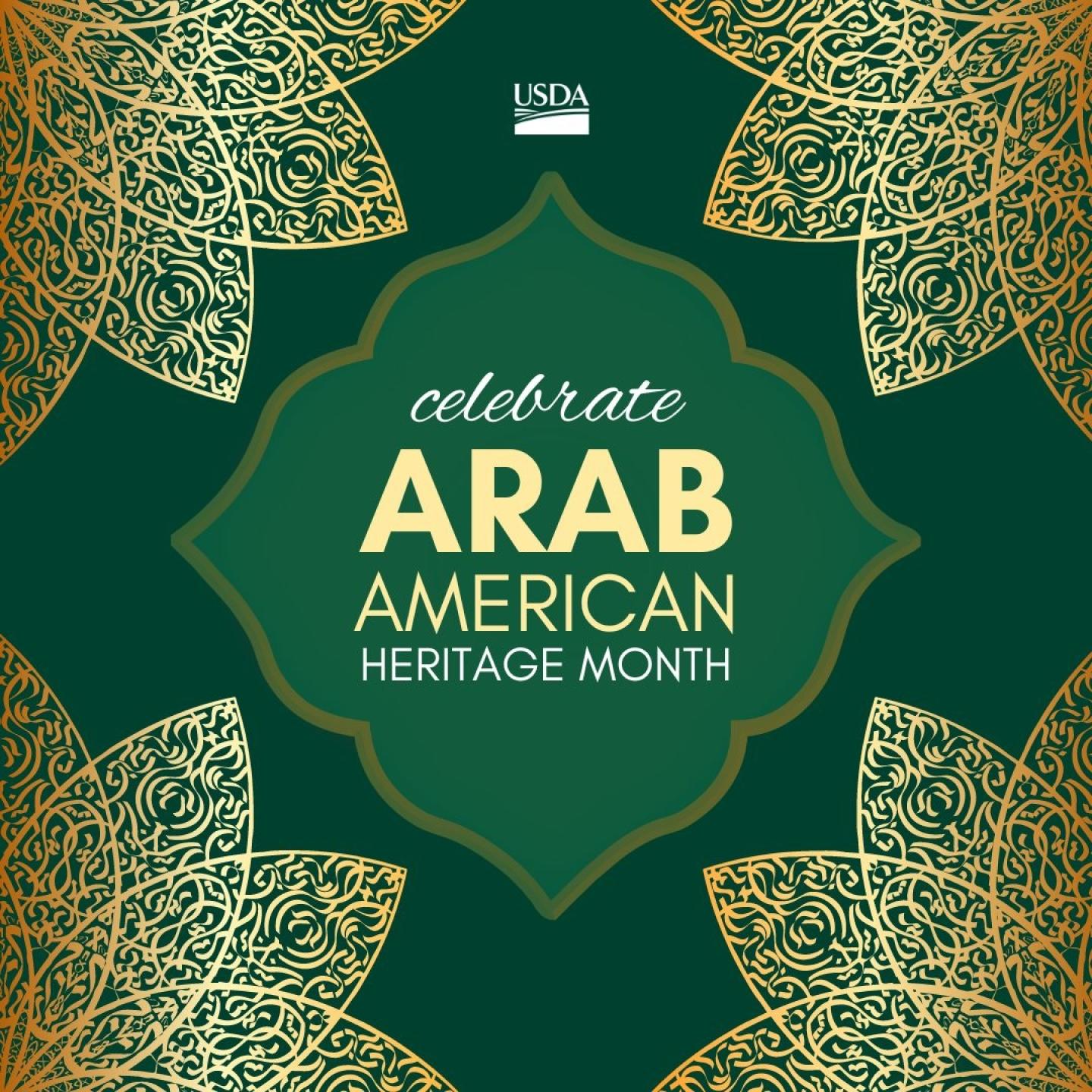
NRCS in North Carolina works to ensure compliance with Agency policies for conservation and equal opportunity programs, and accountability for the delivery of quality and timely service to our customers. USDA is an equal opportunity employer, provider and lender
Mission Statement
To facilitate fair and equitable treatment of USDA customers and employees while ensuring the delivery and enforcement of civil rights programs and activities.
Guiding Principles
The North Carolina (NC) Civil Rights Advisory Committee (CRAC) believes in the strength of diversity, the value of maintaining a positive attitude in the workplace, and in our relationships with fellow employees and our customers. We are committed to treating everyone with dignity and respect and have made it a priority to both listen and learn.
Objectives
1. Ensure representation from various grades, disciplines, and workforce diversity.
2. Provide the communication link through which NRCS employees can bring matters to the attention of management.


April is Arab American Heritage Month, a time to celebrate the rich history and vibrant culture of Arab Americans and recognize the invaluable role they have played in shaping USDA's workforce and communities. To see the full proclamation, visit www.whitehouse.gov.
Key Contacts
| Name | Position | Phone Number | |
|---|---|---|---|
|
Roger Toledo
|
Committee Chair
|
||
|
Sarah Sweeting
|
Committee Vice-Chair
|
| Name | Position | Phone Number | |
|---|---|---|---|
|
Katie Gibbs
|
Area 1 Representative
|
||
|
Sarah Dixon
|
Area 2 Representative
|
||
|
John Gentry
|
Area 3 Representative
|
| Name | Position | Phone Number | |
|---|---|---|---|
|
Tramell Forney
|
Veterans Program Manager
|
||
|
Ami Mineta
|
Asian American, Pacific Islander Program Manager
|
||
|
Julius George
|
Black Program Manager
|
||
|
Ivi Mitchell
|
Lesbian, Gay, Bi-Sexual, Transgender Program Manager
|
||
|
Gabriela Velez Rodriguez
|
Hispanic Emphasis Program Manager
|
||
|
Twanda Smith
|
Disability Emphasis Program Manager
|
||
|
Lance Parker
|
American Indian/Alaska Native Program Manager
|
||
|
Kristian Turner
|
Federal Women's Program Manager
|
What Can You Do if You Believe Discrimination Has Occurred?
Contact the EEOC promptly if you suspect discrimination. Do not delay, because there are strict time limits for filing a charge of discrimination (180 or 300 days, depending on where you live/ work). You can reach the EEOC in any of the following ways:
Submit an inquiry through the EEOC’s public portal at https://publicportal.eeoc.gov/Portal/Login.aspx
Call:
1–800–669–4000 (toll free)
1–800–669–6820 (TTY)
1–844–234–5122 (ASL video phone)
Visit an EEOC field office at http://www.eeoc.gov/field-office
E-Mail: info@eeoc.gov
Additional information about the EEOC, including information about filing a charge of discrimination, is available at www.eeoc.gov.


